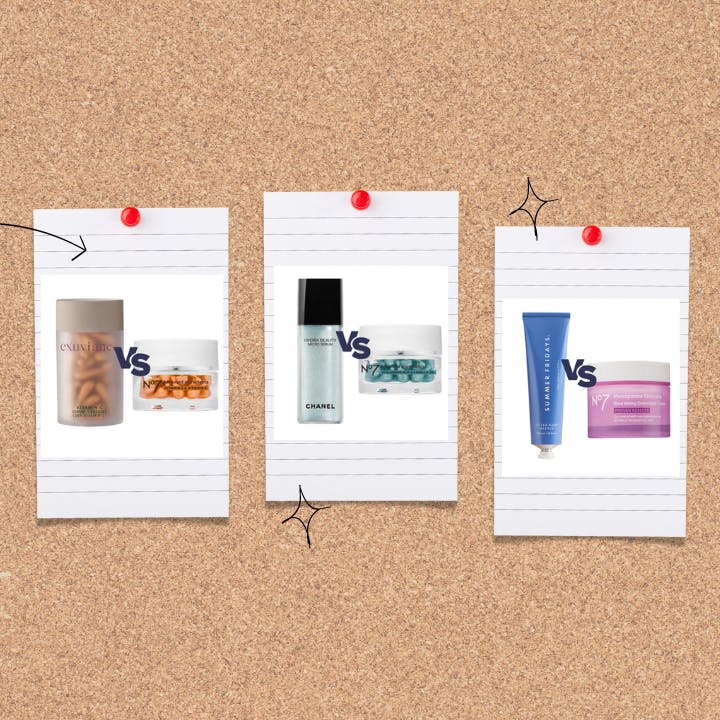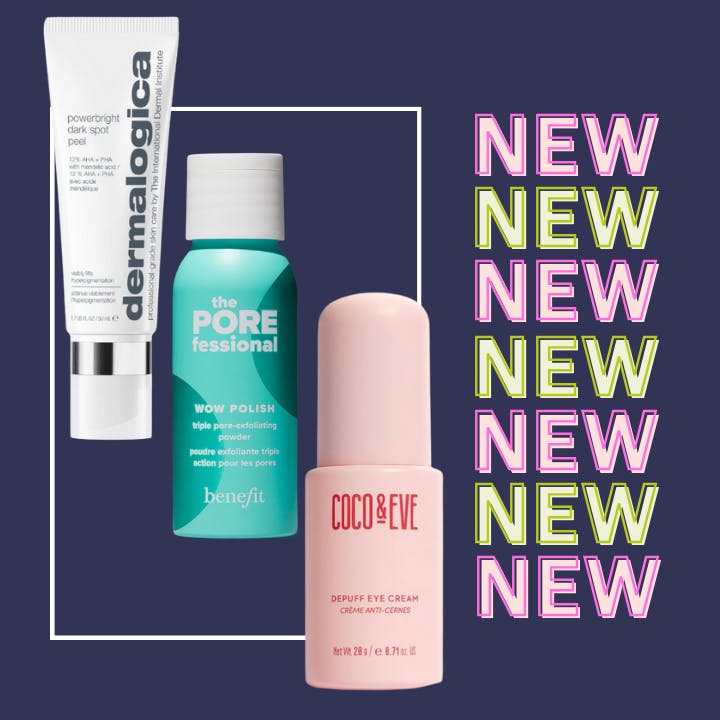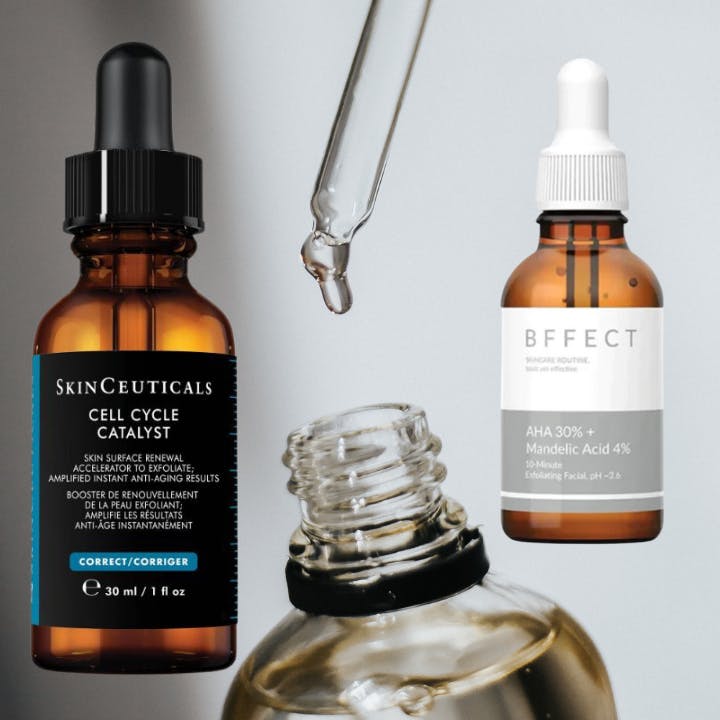Introduction
Rhode Glazing Milk has certainly made a mark in the skincare community. Based on our observations at SKINSKOOL, it ranks as one of the most searched-for products on our INCI list comparison platform. Many users rave about its hydration and skin-barrier strengthening abilities. Yet, as with many popular products, there's often a curiosity about alternatives that might offer similar benefits or better suit specific needs. In this piece, we'll dissect the intricacies of Rhode Glazing Milk and spotlight potential alternatives that our platform has identified. Dive in as we navigate the essence of this sought-after product.
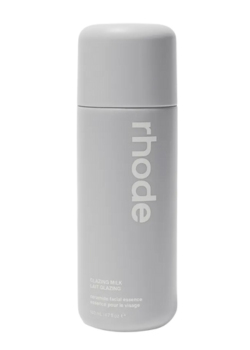
What Does Rhode Glazing Milk Do For Your Skin?
Based on the product description and its ingredient list, Rhode Glazing Milk claims to offer the following benefits:
- Luminous Hydration: The product hydrates the skin and gives it a radiant or glowing finish. Ingredients like Glycerin and various forms of Sodium Hyaluronate are renowned for their ability to attract and retain moisture, making the skin look plump and hydrated.
- Boosts Barrier Function: The presence of ceramides (Ceramide Np, Ceramide Ap, Ceramide Eop) and cholesterol indicates that this essence supports the skin's natural barrier, which helps in retaining moisture and protecting the skin from external aggressors.
- Nutrient-Rich: The formula contains essential fatty acids (Oleic Acid, Linoleic Acid, Linolenic Acid) that nourish the skin, as well as minerals like Copper, Magnesium, and Zinc, which play various roles in skin health.
- Calms Skin: The product serves as a preparatory step to calm the skin. Ingredients such as Beta-Glucan have soothing properties that can help calm irritated skin.
What Key Ingredient Features Define a Good Alternative?
To find a suitable substitute for Rhode Glazing Milk, it's essential to consider its core functions and ingredients, which means seeking out the following criteria:
- Hydrating Ingredients:
Sodium Hyaluronate or Hyaluronic Acid: These are powerful humectants that can attract and retain large amounts of water to hydrate the skin.
Glycerin: Another effective humectant that draws moisture to the skin. - Barrier-Boosting Components:
Ceramides: They are crucial for maintaining and repairing the skin's barrier. Look for products that list ceramides, e.g., Ceramide NP, AP, or EOP.
Cholesterol: Works synergistically with ceramides to support the skin's lipid barrier.
Fatty Acids: Ingredients like Oleic Acid, Linoleic Acid, and Linolenic Acid help nourish and strengthen the skin barrier. - Skin-Calming Ingredients:
Beta-Glucan: Known for its soothing and anti-inflammatory properties. You could also look for other calming agents like Centella Asiatica, Allantoin, or Chamomile Extract. - Nutrient-Rich Elements:
Minerals: Such as Copper, Magnesium, and Zinc. These can support various skin functions, including healing, collagen production, and protection against free radicals.
Vitamins: The presence of Tocopheryl Acetate indicates Vitamin E, which is an antioxidant that can help protect the skin from damage. - Consistency and Absorption:
Given that Rhode Glazing Milk is a lightweight essence, you would ideally want something that is similarly lightweight and easily absorbed without leaving a greasy finish.
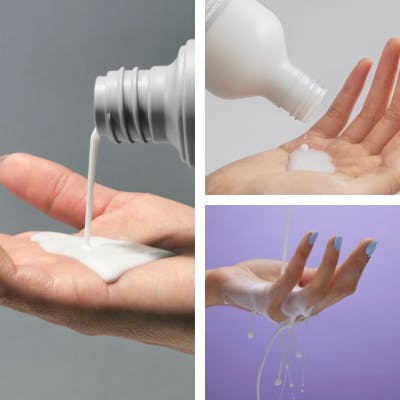
Alternative: Celimax Dual Barrier Creamy Toner
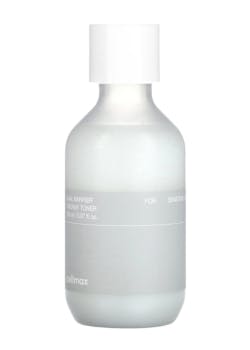
One of the most promising alternatives we've identified searching our backend database is the relatively under the radar Celimax Dual Barrier Creamy Toner. Let's evaluate Celimax Dual Barrier Creamy Toner based on the established criteria:
- Hydrating Ingredients:
Sodium Hyaluronate: Present in Celimax. As a humectant, it's effective in retaining skin moisture, ensuring the skin remains hydrated.
Glycerin: While Rhode Glazing Milk contains this, Celimax does not. However, Celimax has other hydrating elements to compensate. - Barrier-Boosting Components:
Ceramides: Celimax incorporates Ceramide EOP, Ceramide NS, Ceramide NP, Ceramide AS, and Ceramide AP, ensuring a robust enhancement and restoration of the skin barrier.
Cholesterol: While Rhode Glazing Milk contains this component, Celimax doesn't specify it in its ingredients list.
Fatty Acids: Celimax contains Oleic Acid, Linoleic Acid, and Linolenic Acid, all of which aid in nourishing and reinforcing the skin barrier. - Skin-Calming Ingredients:
Beta-Glucan: This isn't listed in Celimax's ingredients. However, the presence of Allantoin compensates, given its soothing and protective properties against external influences and its capability to stimulate new skin cell formation.
Other Calming Agents: Celimax uses Allantoin, which matches the requirement. It's an effective skin-soothing agent. - Nutrient-Rich Elements:
Minerals: Celimax does not specifically list Copper, Magnesium, or Zinc. However, the product focuses on other nutrient-rich ingredients to provide skin benefits.
Vitamins: Celimax contains Tocopherol, indicating the presence of Vitamin E, fulfilling the antioxidant requirement. - Consistency and Absorption: The Celimax Dual Barrier Creamy Toner is designed to be a lightweight toner, similar to the essence consistency of Rhode Glazing Milk. While the specific absorption rate isn't mentioned, toners typically are made to be rapidly absorbed, prepping the skin for subsequent products. This suggests that it should not leave a greasy finish, aligning with the requirement for a lightweight, easily absorbed product.
Pricing: If you're aiming for more value in terms of volume and cost, the Celimax Dual Barrier Creamy Toner presents a more budget-friendly choice. Not only do you save $9.60, but you also get 10ml more product. Especially considering that Celimax meets many of the skincare requirements established earlier, this price point adds another compelling reason for it being a solid alternative to Rhode Glazing Milk.
Conclusion: Celimax Dual Barrier Creamy Toner meets many of the set criteria, making it a noteworthy alternative to Rhode Glazing Milk. It excels in barrier-boosting and hydrating components and offers calming agents. While it may lack specific minerals, its other nutrient-rich elements compensate. The toner's lightweight nature likely ensures quick absorption without a greasy after-feel. Overall, Celimax presents a strong case as a viable alternative and in real life testing is highly recommended!
Alternative: Good Light Moon Glow Milky Toner
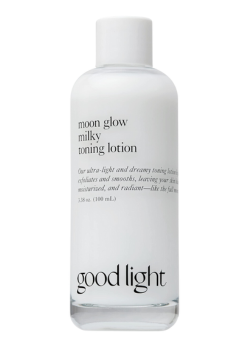
The second top alternative contender identified during our deep dive into our backend database is the Good Light Moon Glow Milky Toner. Based on the established criteria, let's analyze how the Good Light Moon Glow Milky Toner compares to Rhode Glazing Milk:
- Hydrating Ingredients:
Sodium Hyaluronate: Present in Good Light, it acts as a potent humectant that retains skin moisture, ensuring the skin remains hydrated. Rhode Glazing Milk pitches that your skin will have a "glazed donut" appearance, while Good Light claims. your skin will have a "full moon" glow, both suggesting luminous results.
Glycerin: Also present in Good Light, it draws moisture to the skin, amplifying hydration. - Barrier-Boosting Components:
Ceramides: Good Light specifically mentions Ceramide NP, which is crucial for maintaining and repairing the skin's barrier.
Cholesterol: Not specifically listed in Good Light's ingredients.
Fatty Acids: Good Light includes Limnanthes Alba (Meadowfoam) Seed Oil and Argania Spinosa Kernel Oil. These oils contain essential fatty acids that help strengthen and nourish the skin barrier. - Skin-Calming Ingredients:
Beta-Glucan: Absent in Good Light. However, it has Allantoin, a recognized skin-soothing agent, and Tremella Fuciformis Sporocarp Extract, known for its moisturizing and soothing properties.
Other Calming Agents: Good Light boasts several calming ingredients, such as Allantoin, Niacinamide, and Avena Sativa (Oat) Kernel Extract, which are known to soothe and reduce skin inflammation. - Nutrient-Rich Elements:
Minerals: Not specifically highlighted in Good Light's ingredients. However, the inclusion of diverse botanical extracts offers other nutrient-rich benefits.
Vitamins: Good Light includes Niacinamide and Tocopherol (Vitamin E), both of which provide vital skin benefits, including antioxidant protection and barrier support. - Consistency and Absorption: Given that Good Light Moon Glow Milky Toner is described as "super hydrating" and "nourishing," it suggests a formulation that provides deep hydration without being too heavy. However, without a direct mention of its consistency, it would be beneficial to try a sample or read user reviews to gauge its texture and absorption properties.
Price Comparison: While Good Light Moon Glow Milky Toner comes at a lower overall price point, the cost per milliliter is slightly higher than Rhode Glazing Milk. However, considering the difference in volume, the choice between the two might come down to individual skincare needs and preferences rather than price alone. Both products offer unique ingredients and benefits, so users might want to prioritize which features align best with their skincare goals when making a decision.
Conclusion: Good Light Moon Glow Milky Toner aligns very well with many of the established criteria, making it a worthy contender as an alternative to Rhode Glazing Milk. With its focus on hydration, barrier support, and calming benefits, Good Light's toner stands out in its own right.
You should also read:
- A Goop GoodGenes face cream highly similar alternative to check out now
- We've found the best affordable alternatives to the iconic K18 hair mask
- How unique is the Hailey Bieber rhode Pineapple Refresh Cleanser actually?

